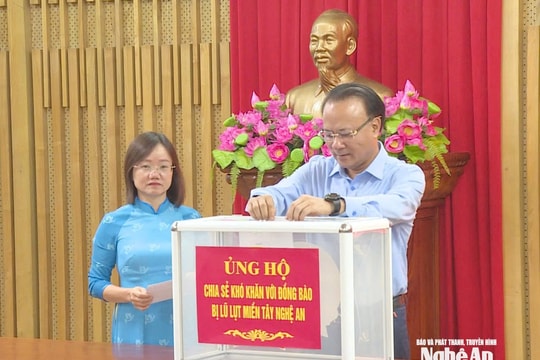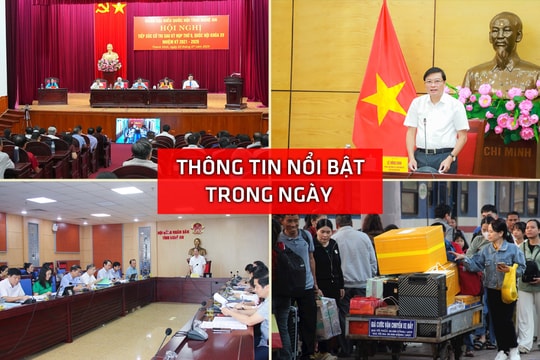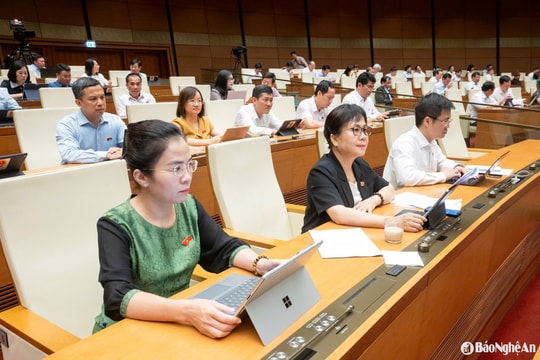Professor Nguyen Lan Dung: Choosing the wrong representative will be a disadvantage for the National Assembly.
Professor Nguyen Lan Dung: Structure is also important, but the quality of the representatives must be put first. If the right representatives are not selected, the National Assembly will be disadvantaged.
The election day for the 14th National Assembly and People's Councils at all levels is approaching. Prof. Dr. Nguyen Lan Dung - National Assembly Delegate of the 10th, 11th and 12th terms discussed a number of related issues.
Must put quality of representatives first
PV: There is an opinion that the selection of National Assembly representatives does not necessarily focus on structure and composition, but the most important thing is how to improve the quality of the representatives. What is the Professor's opinion on this issue?
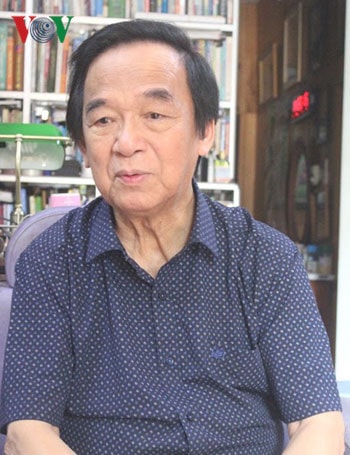 |
| Professor, People's Teacher Nguyen Lan Dung |
Professor Nguyen Lan Dung:Structure is also important, but the quality of the representatives must be put first. Structure creates quality, but there must be harmony and reasonableness between structure and quality. A structure that puts too much pressure on the locality is not advisable. In fact, there have been localities that have encountered difficulties in the process of planning to select candidates for the National Assembly when one person has to shoulder many structures, being female, ethnic minority, young and not from the Party.
In fact, it was only temporary outside the Party during the election, many National Assembly members of this group were admitted to the Party right at the first session. Therefore, it is not surprising that in the previous National Assembly terms, there were still representatives of this group who spoke little, discussed little, expressed little opinions, and even did not speak at all in the National Assembly sessions. How can one person ensure quality when he has to shoulder 4 structures?
The quality of National Assembly deputies has very clear regulations. Not only do they need good ethics, but they also need to have the capacity and have the time to work in the National Assembly. In the sessions I was a National Assembly deputy, I sometimes met a young teacher sitting nearby, and I saw her absorbed in writing down the voting results and not saying anything during the entire session. I asked: "Why are you writing all that down?", she replied: "If you don't write it down, you don't know what to do!". Those women don't have enough capacity, so why send them to the National Assembly?
I feel sorry for them, they are also at a disadvantage. The disadvantage of the National Assembly is that they cannot speak for several sessions. They themselves are also at a disadvantage, although they love their jobs very much, but after 5 years they may not be able to continue teaching because someone else has replaced them. After that, they have to switch to work in trade unions, libraries, youth... which is not in line with their wishes. So in my opinion, we should not structure people like that.
Structure is necessary, but women must be representative women, young people must also be excellent young cadres, ethnic minorities do not need too many representatives, but must be people who understand ethnic policies and know how to protect equal rights for ethnic groups, representatives of non-Party members (who make up the majority of the population) must represent the majority of the people.
PV: How should the action programs of candidates be monitored during their time as National Assembly deputies, because there are still many deputies who do not fulfill their promises to voters during the sessions, Professor?
Professor Nguyen Lan Dung: There are four meetings with voters each year, the important thing is who are the voters? The meetings in Dak Lak, Dak Nong, and Ba Ria-Vung Tau, I found very interesting in that the meetings with voters do not limit the number of attendees, anyone can come, if there are too many people, they can put up a loudspeaker outside. That way, voters have the opportunity to make suggestions, question, and monitor the activities of the representatives they elected.
I am not satisfied with the “grand electorate” model in big cities. Meeting voters in luxurious rooms, every time is still just familiar faces. When I asked, I learned that in some places voters still need an invitation to attend. There are even places where voters have to write down what they want to say in advance. That is completely undemocratic and against the rules.
Uncle Ho defined "democracy" very simply. He said "democracy is to let the people speak up". Here, it is not the people but all voters who have the right to "speak up". Either they express their frustrations, or they criticize the representative who has made promises but has not fulfilled them...
Furthermore, there are regulations that National Assembly deputies must regularly contact and be close to voters, and so voters should be able to meet their deputies whenever they want. When I was a National Assembly deputy, many people came to see me. If I was not busy, I invited them into my house. If they brought me a petition, I would meet them. If they were busy, I would schedule another time... I would not only meet voters in the places where I was running for election, but also voters in any province or city. I consider National Assembly deputies to be representatives of the whole country. The 500 National Assembly deputies are representatives of the entire people, not just representatives of the places where they were running for election.
I asked them why they didn't meet their elected representatives. They said it was difficult to meet them. At the headquarters, at most, they could only meet the Secretary of the Delegation. When they went to their homes, they wouldn't receive them. In my opinion, that's not in accordance with the regulations that require close relations with the people.
PVAccording to the Professor, during the election campaign, is there any distinction between candidates and self-nominated candidates?
Professor Nguyen Lan Dung:There is no distinction between candidates and self-nominated candidates. In fact, it is much easier for self-nominated candidates than for nominated candidates. The nominated candidates have to go through many stages, but self-nominated candidates just write an application, and even people without any profession can run for election.
This time I saw that there were quite a few people who ran for office. Through the meetings with voters at the office and in the residential area, many people did not receive the approval of the majority. Many people did not have a working office, so it was difficult for them to pass the consultation round in their residential area because people did not clearly see the ability of those people to perform elected work.
However, I also have a concern, that is, in the case where there were 100% of votes from voters in the place of residence, 100% of votes from officials of the working agency, but the third consultation eliminated with a simple answer: "In the bundle of chopsticks, you must choose the flagpole". In my opinion, such an answer is not satisfactory. Who is the chopstick, who is the flagpole, what criteria are used to choose? Do those delegates understand this independent candidate better than the agency and the place where that person lives? On social networks, there are even people who reacted so strongly that they wanted to know who did not vote for that person. I think that in that case, it is necessary to let voters choose.
PV: Thank you, Professor!
According to VOV

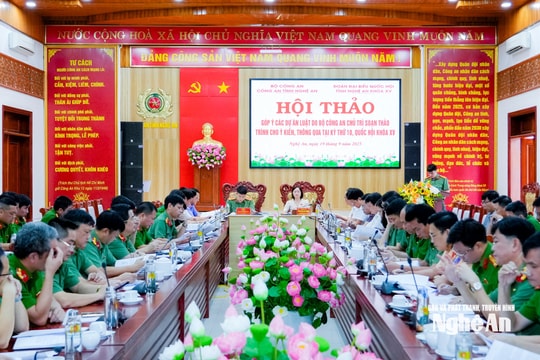
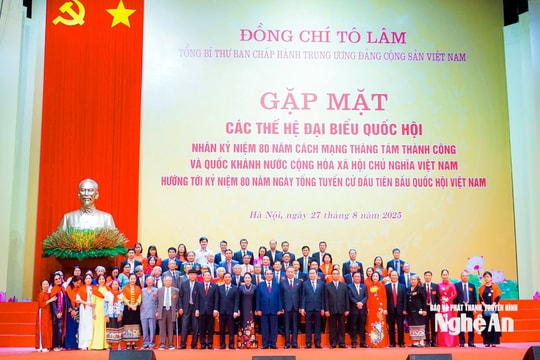
.jpg)
